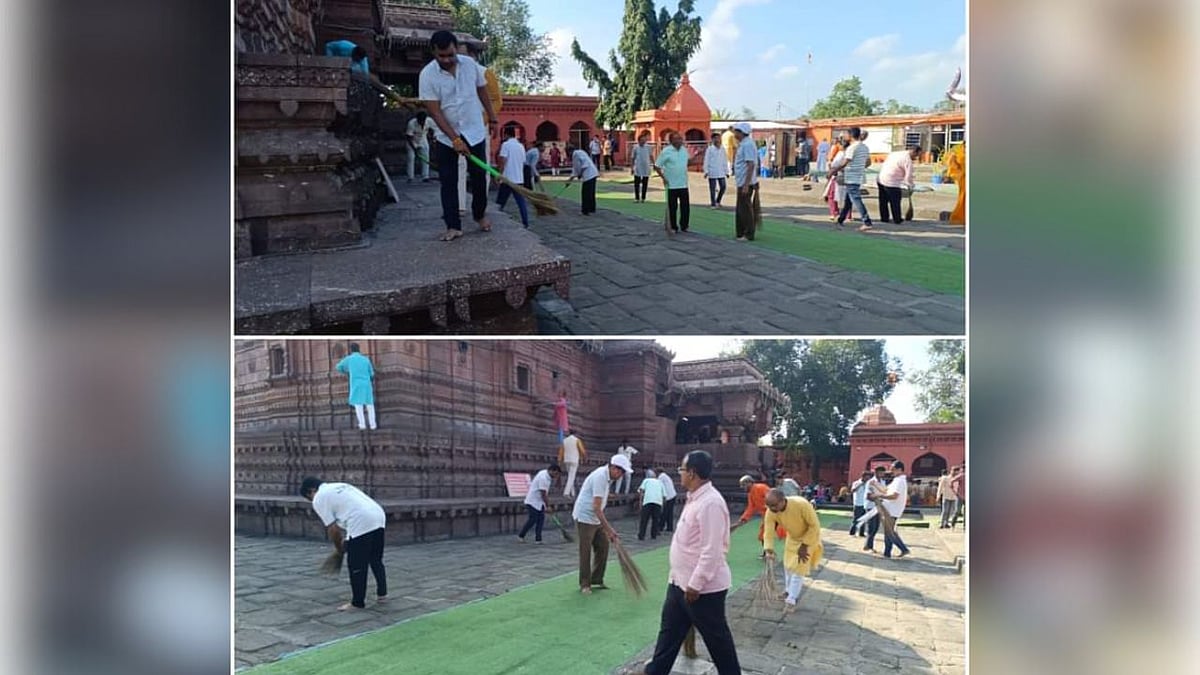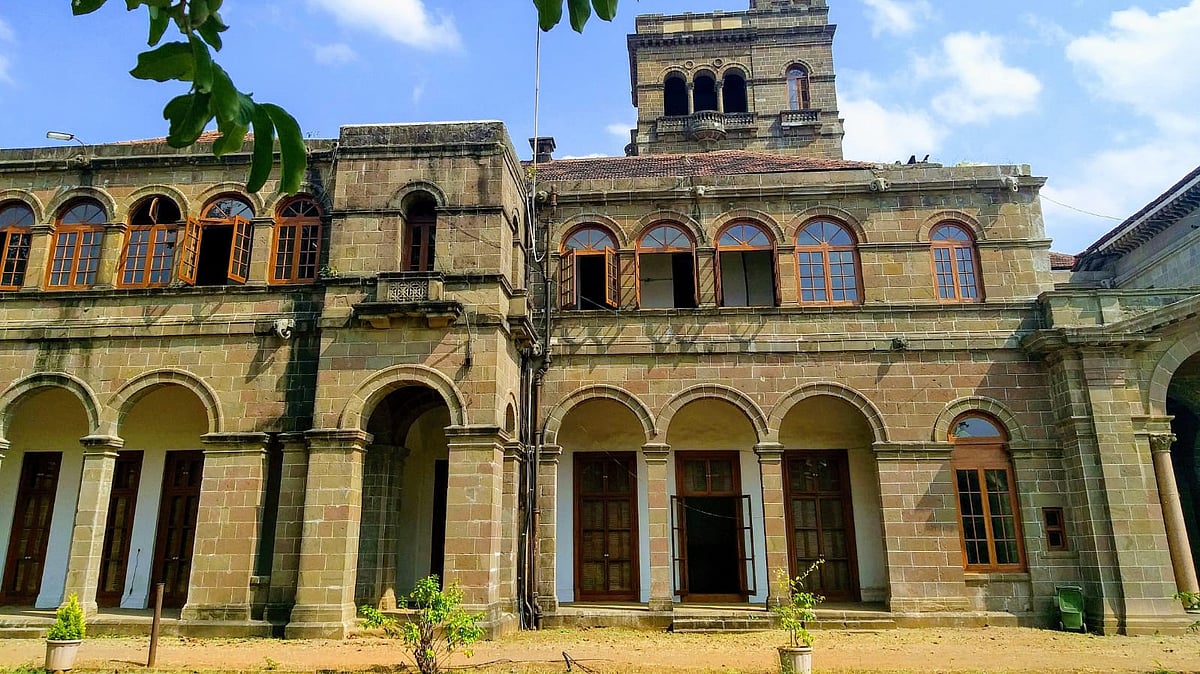The book offers a particularly illuminating and long overdue account of Gandhi’s association with Muslim leaders, and shows how politically tragic religious nationalism can be.

Faith and Freedom: Gandhi in History
Mushirul Hasan
Niyogi Books
Pages: 55; Price: Rs 450 |
No leader in the entire world continues to draw attention as much as Mohandas Karamchand Gandhi, the Mahatma. Year after year, books come into the market on some or other aspect not only of Gandhi’s teachings but about the man himself. The latest in this endless flow of publications is Mushirul Hasan’s ‘Faith and Freedom: Gandhi in History’.
To put it straight, it is not a biography, nor is it an idea-specific work like a study of non-violence, civil disobedience or spiritualism as practised by the Mahatma. It is a potpourri of recounted memories. As Hasan himself states in his introduction, the book “offers a grand account of India’s modern history through themes, significant people and events that are not tied to a chronological narrative framework”.
Furthermore, says Hasan, his intention is to link Gandhi’s moments of greatness with his dependence on all his co-workers who made it easier for him to physically and spiritually relocate in India after his lengthy stay in South Africa. In short, this book is a record of politics, social changes, friendships made and sustained between Gandhi and a variety of people with focus, naturally on Gandhi himself.
Hasan begins with a re¬counting of the history of India since the 18th century and how one third of Bengal’s population perished in a famine in 1770. There are references to Delhi Durbar, to the works of Dadabhai Naoroji and Ramesh Chandra Dutt. When Gandhi read Dutt’s ‘Economic History of India’, writes Hasan, Gandhi wept. There are references to Brahmo and Arya Samaj, Viceroy Dufferin, Statesmen like Allan Octavius Hume, Gopala Krishna Gokale and the Servants of India Society, the talukdars of United Provinces, his western friends Polak and Kallenbach…endless are the people who at one time or other were connected with Gandhi.
Hasan deals with Gandhi’s travels throughout India and the love bestowed on him by people. At one point Hasan says: “His (Gandhi’s) clear and limpid voice purrs its way into their hearts”. One chapter is devoted to ‘We The Nehrus’ which is most revealing of Jawaharlal and even more so of his father Motilal. Another chapter is on ‘The Journey to Swaraj: Paths Taken and Not Taken’ and yet one more on similar lines, this one depicting how Gandhi handled the Congress in the 1930s, with endless anecdotes to enchant the reader.

Everyone old enough are aware of the deep friendship between Gandhi and C.F. Andrews, a missionary. Hasan says they met “as brothers” and “it was an unbreakable bond between two seekers and servants”. Verrier Elwin, another Christian priest, also comes in the picture, as do Romain Rolland and Tolstoy.
Of his remarkable influence on Motilal Nehru, who had the courage literally to give up his legal practice to join Gandhi’s fight for independence, is a story by itself. Would anyone believe that in one big case Motilal earned a fee of around Rs 2 lakh? To say that the Nehru family was rich is to make an understatement.
Hasan writes about Paupers and Princes, about Tagore and Dr B.R. Ambedkar – and the way he recounts events and Gandhi’s reactions to them makes the book unputdownable! Particularly touching is a chapter on Gandhi, Islam and the Nation. Gandhi, writes Hasan, “desired to study Islam as a historical reality and bring Muslims to the fullness of truth through ahimsa and truth. Hasan is most supportive of Gandhi to the very end.
Gandhi, in a way, was close to the Ali Brothers, Shaukat and Mohammed, and Hasan states that in the end it was Mohammed’s “fundamental puritan earnestness” that brought him into conflict with Gandhi. Once a man who treated Gandhi with respect, Mohammed in later years was to say that “even a fallen and degraded Muslim” was better than Gandhi!
The chapter on ‘Engaging the ‘Traditional’ and the ‘Modern’ brings one close to tears. As Hasan claims, so long as the Gandhi charisma worked and his will prevailed, individual Muslims turned vegetarian, spun yarn, wore hand-woven cloth and welcomed small-scale industries. But that wasn’t for long. Gandhi’s message did not go down well with Islamic militancy. The Barelwi ulama were, in particular, up in arms. The Ahl-i Hadith debated the legitimacy of an alliance with Gandhi.
The Mahatma, in the circumstances, had to set aside theological niceties and instead throw his weight behind moral arguments. In regard to Muslims, two Muslim leaders had come closer to him: Maulana Abul kalum Azad and Asaf Ali.
To start with, Azad was ultra-conser¬vative. He championed pan-Islamism. He changed and the relationship between him and Gandhi was to change as well. Hasan quotes Asal Ali as saying that while Gandhi was a great man, he was too great for India “and therefore brought India to grief”. A painful chapter to read is one on “Gaye, Git a, Ganga, Gayatri and Gandhi” – the five Gs.
By the late 30s Muslims had lost faith in Gandhi and Hasan quotes a Muslim editor of an important Urdu paper as suggesting in 1938 that there would be no Hindu-Muslim compromise until the former admitted the existence of a Muslim nation. One Muslim theological school even went to the extent of resenting coupling the name of Rama with Rahim.
In a way this chapter happens to be the most distressing. Hasan himself raises some important questions. One, about conversion. If, according to Gandhi, all religions were merely different roads converging to the same point, how come conversion from one religion to another militated against the dharmic order?
In many ways Gandhi was self-contradictory but for all that Hasan’s high regard for Gandhi remains unquestionable. As Hasan saw Gandhi “whenever he came across coarse intolerance or religious bigotry he reacted sharply rather than remaining a detached onlooker”.
For Gandhi it was a denial of God to revile any religion. At the end Hasan asks a question: Is Bapu finished? For Hasan, he isn’t. He says: (Gandhi) is entitled to our affection because of his passion “for unsettling traditional dividing lines and dichotomies and engaging in conflict management within a system that permitted opposing points of view to co-exist fairly”.
A surprising reason, but then it makes sense in today’s context. Hasan, surely, has done full justice to Gandhi in many unsuspected ways. All credit to him.
M V KAMATH










